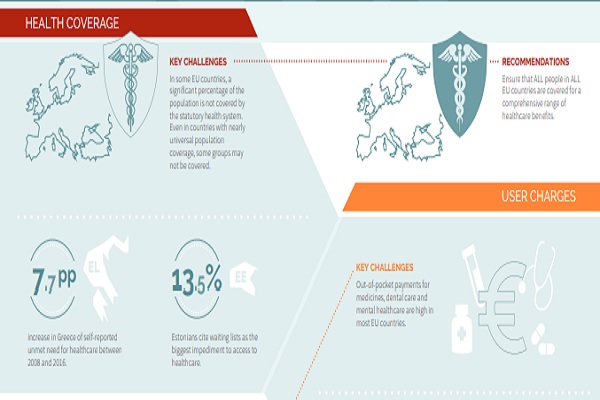
Liser's recently published report on inequalities in access to healthcare has shown that Luxembourg has the lowest percentage of out-of-pocket payments in the EU.
The European Social Policy Network (ESPN), which is funded by the European Commission and managed jointly by LISER, Applica and the European Social Observatory, has just published a Synthesis Report describing the main features of health systems in terms of access to healthcare in 35 European countries
In summary, the report identifies key challenges in inequalities in access to healthcare, discusses recent and planned reforms, analyses the inequalities in access between different population groups and puts forward a number of policy recommendations. Despite a general trend towards improved access, inequalities persist in many countries.
Key challenges identified in the report include the amount of public resources spent on healthcare, which varies considerably between the countries analysed. Indeed, underfunded systems seem to perform worse than the EU average with regard to access to healthcare, but the impact of public spending in this area can be quite different even when expenditure is similar. Moreover, in some countries, a significant percentage of the population is not covered by the statutory health system and several population groups (including those with the lowest incomes, women, ethnic minorities and migrants) have difficulties in accessing healthcare. For instance, whilst the Luxembourg and Lithuania states each contribute 40% to national social health insurance, the Estonia state contributes only 12.6%.
Moreover, high out-of-pocket payments, in particular for pharmaceuticals, are often also a cause of concern. However, this was found to be not so worrying in Luxembourg which had the lowest percentage (1.2%) of out-of-pocket payments in the EU.
This Synthesis Report as well as the 35 Country Reports on which it is based can be downloaded from the Commission website.








